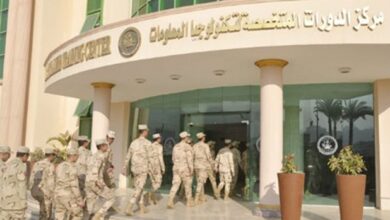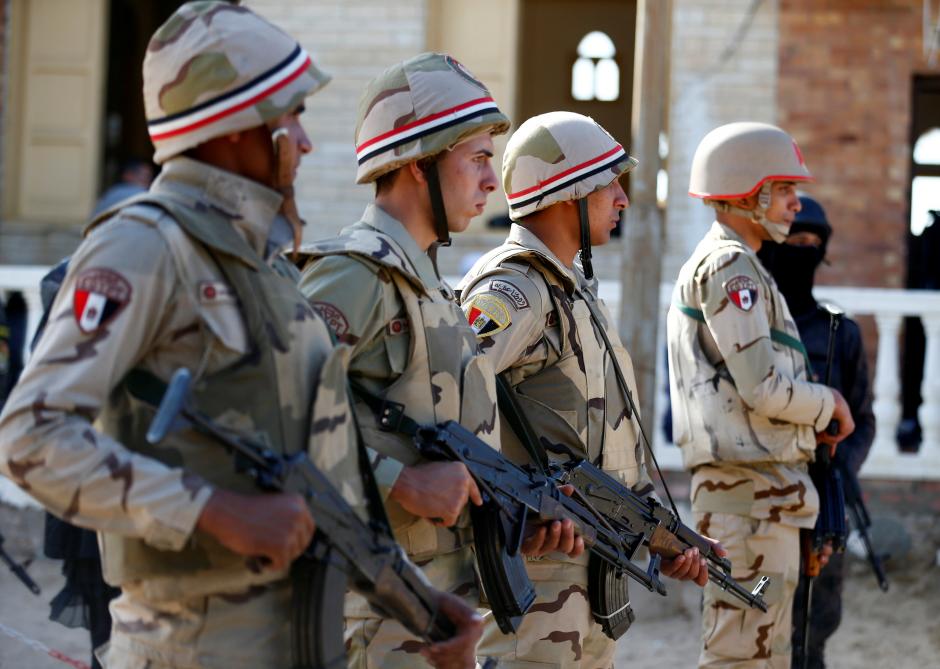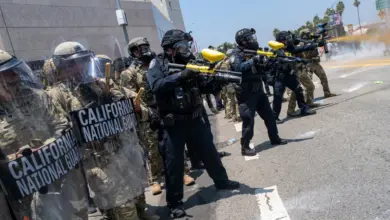Critics of the Supreme Council of the Armed Forces (SCAF) have accused it of imposing its narrative on the recent violence in Qasr al-Aini Street, where clashes between the army and civilian protesters have led to 15 deaths and scores of injuries.
Armed with state media, the SCAF has denied excessive use of violence and claimed that clashes were fueled by third parties intent on destabilizing Egypt and causing state failure. Protesters, meanwhile, have shown video evidence of army brutality, as have various independent news organizations.
Among the millions of citizens who are not actively involved in the protests, there has been a wide range of reactions to these conflicting narratives.
Bahira Amin, a 16-year-old student, is aware of the military's violations, despite its statements to the contrary. She sees the army responding violently to protesters.
“I’m not fully aware of what the demonstrations want, but what the army is doing is atrocious,” she said. Asked if she believes that the army is “hitting” Egyptian civilian protesters, she said, “Yes I do, and I also believe that the word 'hitting' is a massive understatement.”
For Carla Ghazal, a 21-year-old college student, the skirmishes represent the normal continuation of the revolution. “I think these events were bound to happen, and that this is the continuation of what started on 25 January. This is the actual revolution, not the 18 days,” she said referring to the 18-day sit-in that led to the toppling of former President Hosni Mubarak on 11 February.
Videos and images of soldiers’ violence against protesters have gone viral both online and in some mainstream media outlets.
“These photos couldn’t have been Photoshopped. Besides the pictures, there were live videos that showed exactly what happened,” said Ghazal. “I honestly just saw bits and pieces, but I think the SCAF is running out of excuses at the same time; they are denying a lot of stuff. They are not providing the citizens with what the demonstrations are all about, and only reaffirming that they are here to stay. They never wanted to lead the country towards a democracy.”
But others exhibited a more hostile take on the protesters’ position.
“This is not the revolution; these are not the protesters we know. No honest protester will throw rocks and burn buildings, especially a building as precious as the [Egyptian] Scientific Institute, which has books worth millions,” said Heba Ghazi, a 41-year-old working mother.
Zamzam al-Sayed, a 46-year-old domestic worker, defends the army and believes that it prevented catastrophe. “The army would never harm any Egyptian, no matter what. If it wasn’t for them, Israel would have invaded us like old times. The army would never hit its own people. It’s a glorious organization.”
Ghazi also rejects allegations that the army beat protesters.
“The army will never beat its own people. But for every action there is a reaction. The army only reacts to the violence and vandalism from the so-called protesters, so there have to be losses.”
Like many others, Ghazi believes the SCAF’s accusations that infiltrators are being paid to destabilize the country.
“These thugs are following a plan and getting money for doing so. I believe that the people responsible for this are mainly former regime members.”
The idea of a conspiracy is also supported by Yasser Abdel Hady, a 45-year-old manager. However, he thinks the violence is the work of foreigners.
“A foreign agenda is planned to weaken Egypt, and there are a lot of people taking advantage of the chaos that is happening. This country has a lot of enemies because of its political stature. Many people don’t want to see us developing, so they invest to make that not happen,” he said.
But for Sayed, it does not take foreigners to destabilize the country. "These people aren’t paid, they just want things to stay the way they are.”
“The army has been enduring insults… and all they have done is a reaction. The army has no intention to hurt its people. We have had democratic elections and we are not interested in ending up like Syria,” says Hady.




